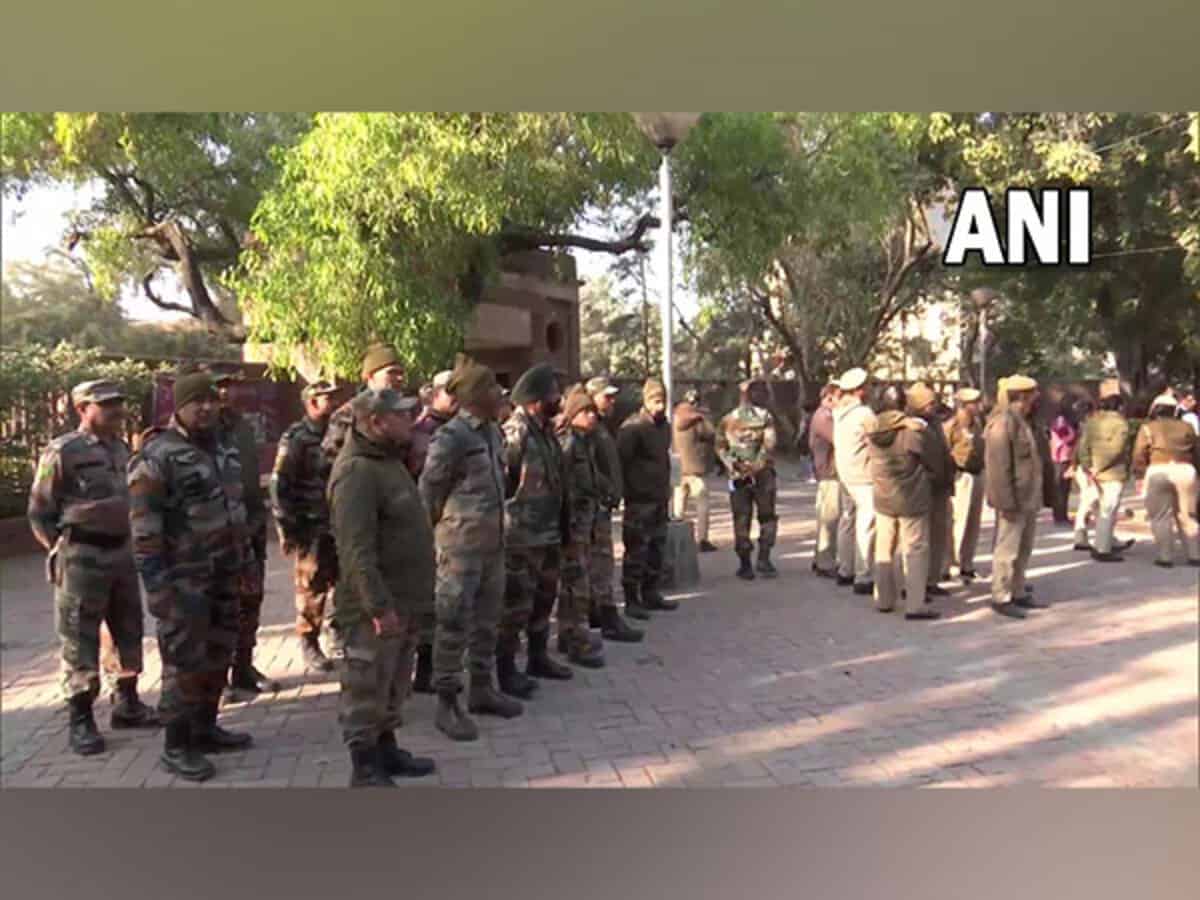
New Delhi: The Delhi Police on Friday imposed Section 144 (banning large gatherings) at the Faculty of the Arts at Delhi University in wake of a call by NSUI-KSU for the screening of a BBC documentary on Prime Minister Narendra Modi.The move came amidst rising tensions between the student community and the government over the screening of the documentary which has created a fresh row in the country.
The BBC documentary, titled ‘India: The Modi Question’, has caused a stir in the country after the government, earlier this month, denounced it and described it as a “propaganda piece” that is designed to push a discredited narrative. The government also pulled down the BBC documentary from various social media platforms including Twitter and Youtube.
The move sparked a wave of protests and demonstrations by students and opposition parties, who criticized the government for restricting freedom of speech. The row further deepened after JNUSU members allegedly faced a “deliberate” power outage, while they were screening the impugned BBC documentary at the Jawaharlal Nehru University campus in the national capital.
The documentary lead to opposition attacking the government on freedom of speech despite the government terming it as a ‘propaganda piece’. The documentary, which was created by a British journalist, was based on interviews of various key figures, including the Prime Minister and his close associates, as well as experts on Indian politics. It sought to explore Modi’s rise to power and his policies, and the impact they have had on the country.
The government’s move to ban the documentary and clamp down on its screening has further fueled the tensions, with students and opposition parties accusing the government of trying to stifle dissent and suppress free speech. On Wednesday, 13 students were detained after some students tried to create a ruckus outside the Jamia Millia Islamia University over the screening of the BBC documentary.
The Delhi Police said the university administration did not allow the screening of the BBC documentary in campus. On Monday the administration of the Jawaharlal Nehru University in New Delhi also warned against screening the BBC documentary on the campus after a group of students released a pamphlet inviting students to a screening of the film at the students union’s office at 9 pm on Tuesday (January 24).
The JNU Students Union wrote to the university administration over its firm advisory against the screening of the BBC documentary stating that they “do not seek to create any form of disharmony” and their purpose is to only watch it on the campus. It also mentioned in the letter that the students with “voluntary interest” would take part in the screening.
Despite the government’s efforts to block the screening of the documentary, students continued to organize screenings and protests, leading to a clampdown by the police. 24 students were detained, according to media reports, and a large number of security personnel were deployed outside the Faculty of Arts.
The situation further escalated when later in the night, the JNU students marched toward Vasant Kunj police station claiming stone pelting by members of ABVP while the said documentary was being screened. The students claimed that members of the ABVP, a student organization affiliated with the ruling party, had attacked them while they were screening the documentary, causing injuries to several students.
The protest was later called off after the police assured students of taking up the matter and looking into it immediately. The government’s move to ban the documentary and clamp down on its screening has further fueled the tensions, with students and opposition parties accusing the government of trying to stifle dissent and suppress free speech. The situation continues to be tense and closely watched by the international community and human rights groups.



